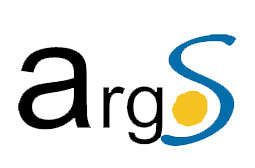This video has timestamped descriptions to allow viewers to jump to particular topics and sections. Links will open the video in YouTube.
Who are you and what type of work do you do? 00:19
When and how was Argos started? 01:24
What relation, if any, exists between the project that you represent and the 15M? 02:12
Can you explain the name of the project “Argos”? 03:38
What does it mean to be an “environmental educator” and what is “environmental education”? 04:09
What is the goal of this Project? 06:44
What activities are developed by this project? 07:18
Does Argos receive any kind of economic benefits or institutional support? 08:00
What relationship, if any, does Argos have with the University? 09:31
What relationship, if any, does Argos have with the University? 10:04
Can you explain to us what the Young Parliament is? 11:25
How would you define the Argos philosophy? 13:14
What does it mean to you to educate from the perspective of Argos? 13:28
What would you say are the most important shortages in education in our time? 15:06
How is Argos’ intervention received in the teaching centers? 17:27
How can someone get trained in environmental education today? 19:24
If someone wanted to be trained as an environmental educator, what steps would they have to take?20:01
What relationship exists between Ecologistas en Acción (Environmentalists in Action) and the environmental education tools? 22:19
Is it possible to find the tools and methods that you’ve developed online? 25:05
What kinds of people work in Argos, and how many? 26:20
How does the concept of work change in the context of this? 30:32
Why do you think that in the collective imaginary, the model of a company isn’t considered one of the possible tools of transformation? 34:10
How do you keep up hope in times of political discontent? 36:29
What does it mean to Argos or to you to grow? 37:52

Argos is the name of a friendly business whose full name is Argos. Educational Projects S.L. It uses various methods of intervention, having social transformation as its objective. One method is environmental education, another is participation, another is the teaching of science promotion of science, that is more or less how we operate. What we normally do is teacher training, methodological orientations, and publishing materials. (…) We understand environmental education as an island that allows people to situate themselves and have as a point of reference from which to analyze reality in a new way and to be able to construct a new paradigm that would allow us to live more sustainably on this planet. It’s a tool for analyzing reality and constructing a paradigm for how to live in this world. (…) It’s important to us to work in environmental education that goes to the root of environmental issues. I don’t think that is exclusive to Argos but there are many organizations that do not operate from that premise. If we want to change our reality and move towards a new paradigm, we think that it’s important to promote understanding of where and why the current system does not work. Another characteristic of our work is that we take a global approach to environmental topics, trying to accurately capture them as a system of socio-environmental relationships, which is necessary in order to understand their complex reality. These two characteristics define the work that we do. Methodologically speaking, we work do our work through participatory action and research, which sums up the type of projects we tend to develop: an eco-school, youth parliament, and similar sorts of initiatives.





